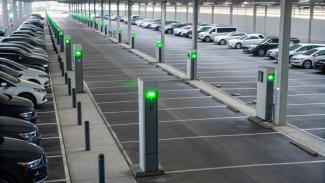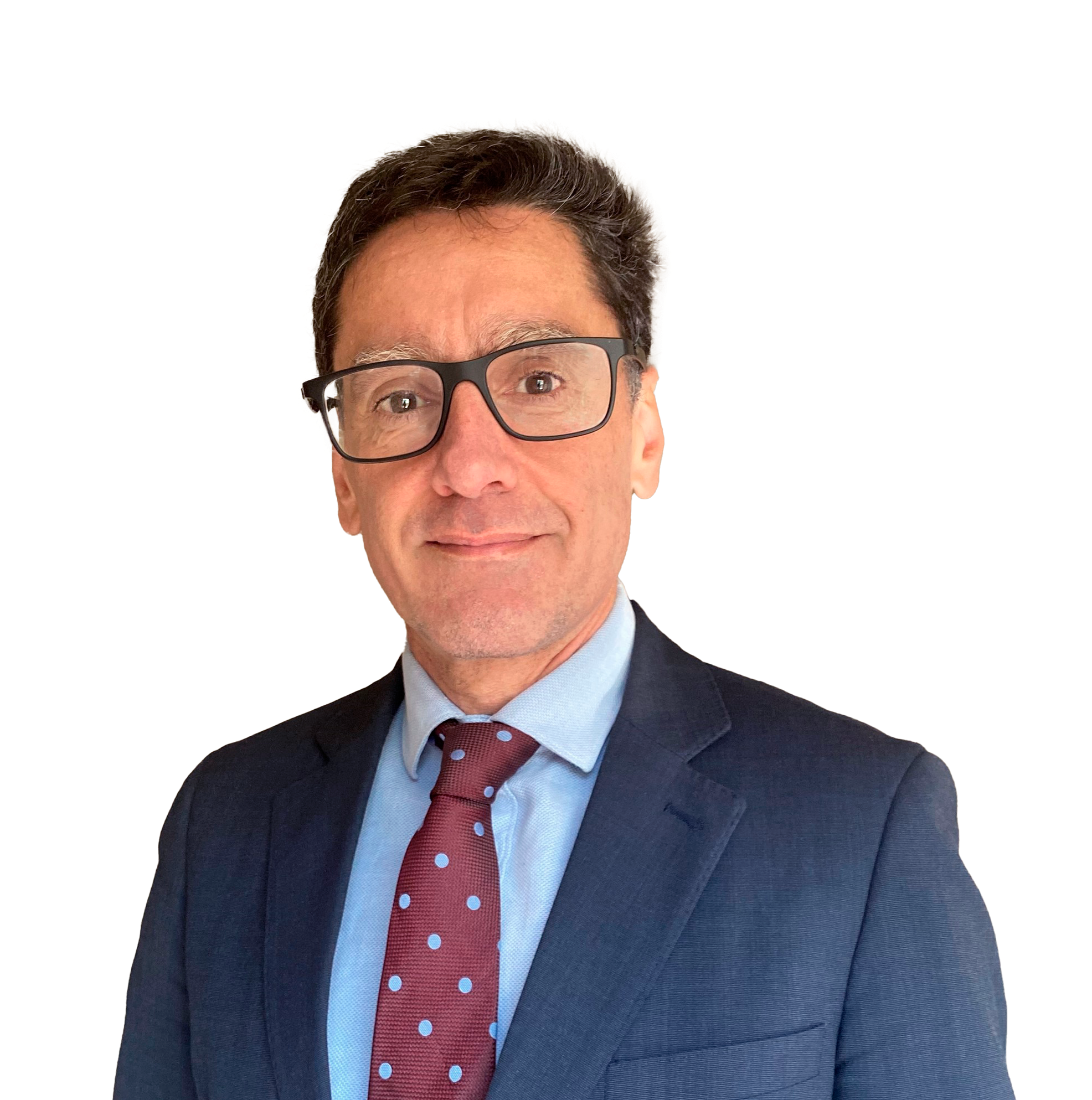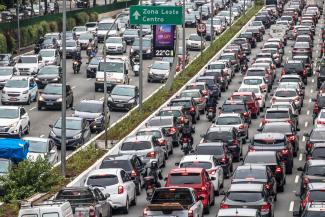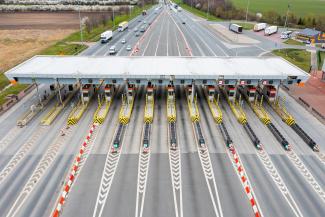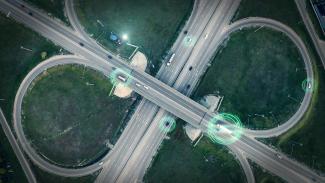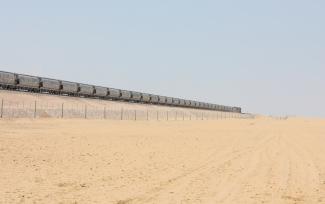Saudi Arabia’s Vision 2030 is already reshaping the urban landscape, with a clear focus on livability, mobility, and sustainability. Beyond building infrastructure, the Kingdom is advancing toward a more environmental and sustainable urban mobility model, where transport systems are designed to reduce congestion, improve air quality, and enhance quality of life.
Urban mobility is being addressed from multiple perspectives: public transport is prioritized as the backbone of the system, but parking is also recognized as a critical lever to organize flows, regulate demand, and support a more structured approach to city mobility. Long treated as a static utility, parking is now positioned as a strategic enabler of urban transformation.
Recognizing its impact on congestion, safety, and accessibility, the Kingdom has moved decisively to strengthen its regulatory framework and open the sector to structured private participation. This ambition is already materializing through PPP pilots launched in Riyadh, demonstrating the Kingdom’s intent to test diverse models at scale. For international investors, this creates a transparent and investable market, underpinned by new PPP models and global best practices.
Market landscape in Saudi Arabia
Saudi cities are experiencing rapid urban expansion, driving demand for efficient parking infrastructure. Key dynamics include:
- Car dependency: high, with parking demand growing in parallel with urban population and vehicle ownership.
- Fragmented supply: surface lots and under-regulated on-street spaces dominate, while structured and automated facilities are limited.
- PPP momentum: In 2024, three landmark projects have been launched, demonstrating varied PPP models and scales:
- Riyadh Smart Car Park PPP (Solutions by STC with National Car Park Company): a 10-year DBOM agreement covering 140,000+ spaces across 12 sites, introducing advanced smart parking technologies.
- Al Olaya Car Park PPP (Mawaqif): a BOT concession for 6,000 spaces across 13 sites in Riyadh, awarded on a 20-year basis.
- Al Sabkha District Multi-Storey Car Park PPP (Parking): a DBFOM project for a 350-space, 7-floor multi-storey car park in Riyadh’s historic district, awarded for 25 years.
Together, these pilots illustrate Saudi Arabia’s intent to test multiple models, from bundled portfolios to single-asset structured facilities.
Regulatory and policy framework
A milestone reform was MOMRAH’s introduction of a Paid Car Park Permit system in September 2024. This regulatory framework covers:
- Facility categories: commercial/government developments, independent lots, automated parking systems.
- Licensing standards: compliance with the Saudi Building Code, accessibility provisions, and EV charging requirements.
- Operational rules: automated access/payment systems, a 20-minute grace period, clear tariffs, and penalties for misuse.
- Digital facilitation: approvals streamlined through the Balady platform, including for valet services.
By harmonizing rules across the Kingdom, the framework enhances policy clarity, boosts enforcement, and reduces investor uncertainty.
Technology and innovation
Saudi Arabia’s PPP framework mandates the integration of smart systems to modernize and professionalize the parking sector. Automated enforcement through license-plate recognition reduces leakage, while smart kiosks and dynamic guidance panels enhance user experience. In parallel, EV readiness requirements align projects with the Kingdom’s sustainability objectives, and the Balady digital platform streamlines licensing and compliance. For investors, these standards not only de-risk operations but also open the door to technology-driven ancillary revenues.
Global best practices
Saudi Arabia can draw lessons from international leaders in parking PPPs. The Netherlands, Singapore, France, Spain, and Dubai represent Tier 1 mature ecosystems, combining policy clarity, digital enforcement, strong PPP structures, and sustainability integration. Other countries, such as the USA and Germany, are also advanced but operate with more fragmented approaches:
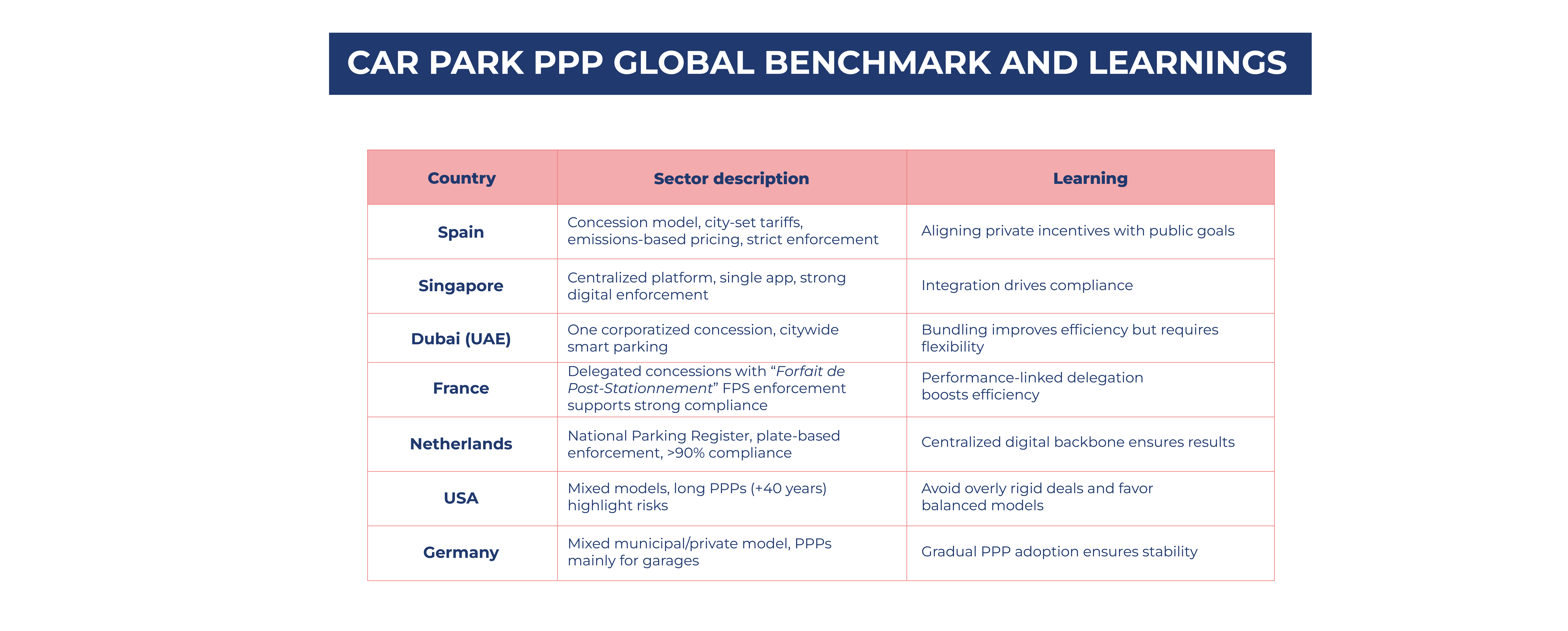
Maturity gap analysis
Saudi Arabia can leverage from international mature parking sectors' best practices to accelerate development, avoid pitfalls, and attract global capital.
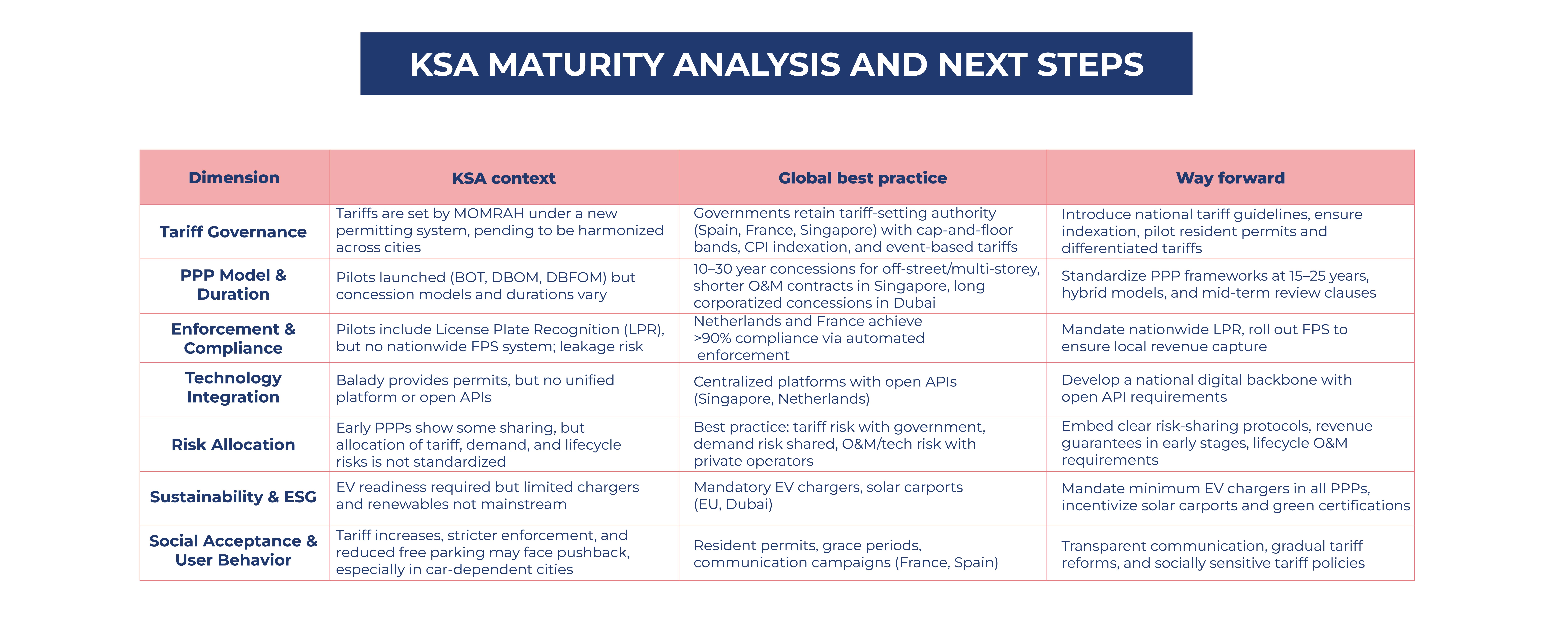
Well-structured PPP contracts with tariff protocols, enforcement KPIs, lifecycle O&M requirements, and technology refresh clauses will be critical to ensuring long-term performance and bankability.
Building the future of urban mobility: smart parking and PPPs in Saudi Arabia
Saudi Arabia is firmly on the right path toward developing a modern, investor-friendly parking sector that complements its wider urban mobility agenda. As public transport expands, structured parking PPPs will play a vital role in organizing urban flows, reducing congestion, and enabling more sustainable mobility. Recent regulatory reforms, the launch of PPP pilots, and the integration of digital mandates demonstrate a strong commitment to aligning the sector with Vision 2030 objectives. These steps have already created a more transparent and investable environment, signalling to international operators and financiers that the Kingdom is serious about long-term sector transformation.
Looking ahead, embedding additional global best practices such as tariff harmonization, standardized concession models, automated enforcement with post-parking fee mechanisms, centralized digital platforms, and expanded sustainability measures will accelerate the sector’s maturity. By doing so, Saudi Arabia can enhance operational efficiency, strengthen financial resilience, and further boost its appeal to international investors, ensuring that parking becomes not only a reliable infrastructure asset class but also a catalyst for smarter, greener, and more sustainable urban mobility.

